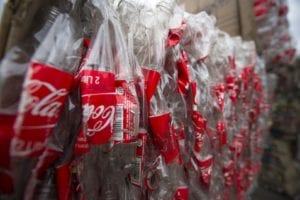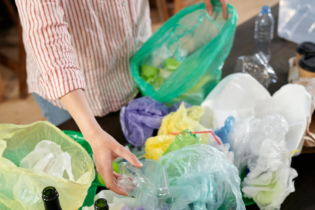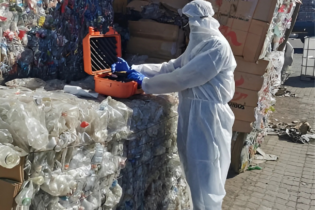South Africa has a huge waste problem. According to the Department of Environmental Affairs’ State of Waste Report (SoWR), South Africa produced in excess of 54 million tonnes of waste in 2017.
Of this total, the report estimated that a maximum of only 10% is recycled or recovered for other uses, whilst the remainder ends up in landfills or is illegally dumped elsewhere. The situation is likely to have worsened in the intervening years as designated landfill sites have reached capacity and waste is discarded illegally, to the detriment of communities and the environment. The country’s waste crisis calls for effective and ambitious solutions. Prioritising recycling at the source is the growing call from waste management organisations who have called on communities and individuals to play their part in reducing waste through recycling initiatives. Companies such as Coca-Cola Beverages South Africa (CCBSA) are a part of the crusade to curb the growing and unnecessary waste that find their way into local landfills via multilateral collaborations with local communities, Government, waste management organisations, as well as other private sector partners. CCBSA, one of the Coca-Cola Company’s bottlers in South Africa, is steered by The Coca-Cola Company’s World Without Waste strategy – aimed at collecting or recycling a bottle or can for each one the company sells by 2030 and making 100% of their packaging recyclable by 2025. The company has declared an ambitious and innovative undertaking to use at least 50% recycled material in their packaging by 2030. Throughout September in line with the company’s commitment to protecting the environment, CCBSA is ran a number of clean-up operations across the country, including along ecologically sensitive coastal and river systems. Nozicelo Ngcobo, CCBSA public affairs, communication, and sustainability director, says: “Partnerships are key if we are to change society’s attitude and behaviour towards responsible management of waste and keeping our communities and environment clean and safe.“We want to educate people about the importance of recycling and material reuse to improve collection and recycling rates as part of making packaging waste part of a circular economy.”
According to Ngcobo, the key to effective and successful strategies is collaboration with CCBSA’s host communities. “Their input and participation in solving our waste crisis are what further motivates us to achieve our goals,” she says. In 2021, Coca-Cola approved a R3-million grant and partnered with PET Recycling South Africa (PETCO)to support the national network of over 100 buy-back centres as part of efforts to keep PET (polyethylene terephthalate) packaging out of the environment and into recycling for reuse. The partnership helped position waste reclaimer PETCO as a “recycling hero” and helped in “transforming the landscape of the township economy”. But, says Ngcobo, recycling should be everyone’s business and the various clean-up activities around the country is part of a growing awareness of the role that “each person can and must play to ensure a safer and considered future for all”. “Profitability is important, but not at any cost. People matter. Our planet matters. We are committed to doing business the right way by partnering for solutions that benefit us all. As one of the world’s biggest beverage companies, we have a responsibility to help solve the packaging problem and achieve a World Without Waste. We will continue to support collaborative participation from the private sector, NPOs, NGOs and the public sector”, concludes Nozicelo Ngcobo. For more information about the bottler’s collaboration with The Coca-Cola Company’s World Without Waste strategy by 2030 on https://www.coca-cola.co.za/sustainability/world-without-waste






